Concordia project: Green energy reporting and Call to Action 86
NOTE -- This article is part of a collaborative news interactive on energy leadership in Nunavik. To be directed to the home page, click here
This is a story about Inuit resilience, self-determination and true climate leadership. The world premieres of Innavik: Leading the way to a clean energy future, and Simeonie Nalukturuk: in his own words, took place at Uquutaq High School in Inukjuak, the day before going live on the CTV Montreal website. Next up, we will screen with the Indigenous Clean Energy (ICE) team at the Canada Pavilion at COP27 in Sharm El-Sheikh, Egypt. The focus is on Indigenous communities leading the way in Canada’s energy transition. In this case, once the hydro project is up and running, the per capita greenhouse gas reductions in Inukjuak will be more than what any community in Canada has ever done.
There is a behind-the-scenes part to this story, however, that I am proud to share. That part is about bridge-building, collaborating and creating space for new kinds of journalism partnerships in response to the Truth and Reconciliation Commission and Call to Action 86. Since 2018, I have been working with Indigenous Clean Energy to develop strong relationships with communities that are leading the shift to clean energy. We work collaboratively to develop journalism that will amplify stories of Indigenous climate leadership far and wide.
Underlying these efforts is the recognition that generations of journalists have caused great harm to Indigenous peoples by repeatedly using racist, negative stereotypes, parachuting in and out of their communities and practicing extractive journalism. As a non-Indigenous person, I have a lot to learn and approach this work with humility and care, and this is something I encourage each of my students to do as well. We can and must do better.
What is conciliatory journalism?
My research is about exploring conciliatory journalism, and methods developed by Finnish researchers that focus on how we report during times of social polarization. These methods, along with Anishinaabe journalist and scholar Duncan McCue’s advice on decolonizing journalism education, have been instrumental in the formation of my ongoing projects.
The project in Inukjuak started in 2019, when Chris Henderson of Indigenous Clean Energy told me about the historic work being done there, and proposed an introduction to community leaders. That introduction followed soon after, and I engaged in initial conversations with Terri
Lynn Morrison of ICE and Eric Atagotaaluk of Pituvik. Between 2019 and November 2021, when the Concordia team finally made the trip north, we focused on learning as much as possible about the renewable energy project and the people of Inukjuak. Eric was instrumental in meeting our group via Zoom beforehand, and spent time helping us understand the community context and the history of Inukjuak. Organized by Sarah Ladik, Globe and Mail journalist Willow Fiddler gave us training on responsible reporting in Indigenous communities through Journalists for Human Rights (JHR). Rachel Pulfer, Executive Director of JHR, and Jordan MacInnes of JHR were early supporters of this research and the support we have received through JHR organization has been integral to the success of our work.
Upon arrival in Inukjuak, we met Johnny Mina who drove us everywhere we needed to be, and Aalacie Nalukturuk who provided translation during our time there and for the documentary. At one point, we were invited on to a community radio call-in show to explain who we were and what we were doing there. I will never forget that experience of learning and sharing on the radio during our first evening in Inukjuak. We are also grateful to Tommy Palliser who spent time with us, let us meet and play with his family’s dogs, and shared his insights, not only during our time in Inukjuak but over the past year as we worked to get the story right. Johnny Kasudluak, who has been incredibly busy in the past few months, still found time to do voiceovers in both Inuktitut and in English. Nakurmiik, Johnny.
As work on the documentary project progressed in the spring and summer of 2022, Eric and I met in Ottawa at the annual Indigenous Clean Energy gathering. At that point I was able to share an initial cut of the project. As a group, the students and I decided to create two documentaries after the unexpected passing of community elder and leader Simeonie Nalukturuk. He had spoken to us on his last day in office as Mayor of Inukjuak, and it was less an interview and more a moment for him to say what was on his mind. I think I asked two questions. He knew what he wanted to say and he said it. We felt it would be wrong to edit the video down, but we wanted to make sure this would be acceptable to his widow, Aalacie. Eric helped us navigate these conversations and we are very grateful for that as well.
Funding for the project has come from the Social Sciences and Humanities Research Council of Canada, the Petro-Canada Young Innovator Award at Concordia University, and private donors who paid for extra student honorariums and airfare to Inukjuak. Did you know it can cost $2,500 to fly five hours north in our very own province of Quebec? That’s a topic for another day.
In the way of intellectual and practical support, I look to and thank Donna Goodleaf and Concordia’s office of Indigenous Directions, my department chairs Dave Secko and Andrea Hunter and of course my students who believe in the work we are doing and come to the table with all of their hearts and minds.
More than sixty students applied to be a part of my three-student team to Arctic Quebec. Luca Caruso-Moro has put his soul into this project from the very beginning. Now a full-time journalist at CTV Montreal, Luca was responsible for the creation of our website on CTV and for extensive editing and producing of both documentaries. Virginie Ann, now full-time at CBC Whitehorse, shone as our print reporter, engaging in a profound way to write about the climate leadership in Inukjuak with precision, sensitivity and grace. Kaaria Quash captured the most beautiful images during our time in Inukjuak, and compiled a remarkable photo gallery as a result. Kaaria also created the graphics for the documentary and provided editing help at the start. All three were integral in the production of the overall project and all three are extraordinary journalists in their own right.
Collaborative Partners
Three main collaborative partners have made this work possible. First, as I mentioned, our partnership with Indigenous Clean Energy has formed the foundation for everything we are doing in relation to these projects. Journalists for Human Rights is another official collaborator, and have provided excellent training for student journalists through their Indigenous Reporters Program alongside Globe and Mail reporter Willow Fiddler. CTV Montreal is our media partner, and in particular Amy Luft has been a steadfast supporter, offering journalistic and digital expertise throughout the creation of our platform, with her sharp intellect and creative talents. Jed Kahane was an early supporter since 2018, which we will always be grateful for, and Chris Bury has subsequently supported and encouraged our partnership.
Nakurmiik to all, for helping to create this important platform from which Inukjuak’s inspiring story of Inuit innovation can be shared with the world.
The team
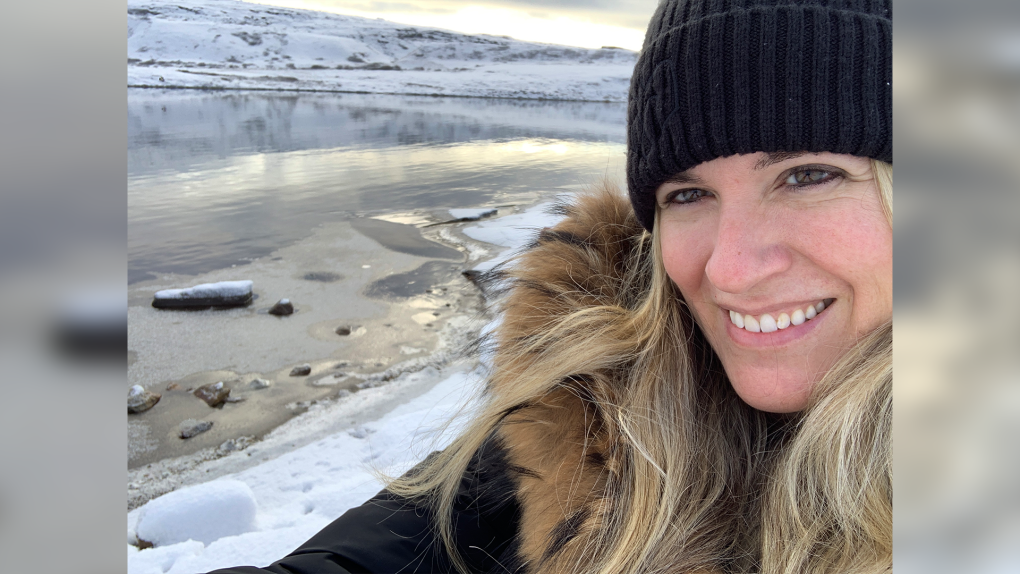
Aphrodite Salas (she/her)
Aphrodite Salas is Director of the Graduate Diploma Program and assistant professor in the Department of Journalism at Concordia University. Her research interests include collaborative and conciliatory models of visual journalism, media and reconciliation and the decolonization of journalism education. The Inukjuak project is part of Aphrodite’s SSHRC-funded research into conciliatory journalism practices, all focused on highlighting climate leadership with the Indigenous Clean Energy Social Enterprise, Concordia University and media partner CTV Montreal. The first project “from shore to sky: a reconciliation story,” was completed in collaboration with climate leaders in Kiashke Zaaging Anishinaabek-Gull Bay First Nation. As a journalist, Aphrodite has worked across Canada and internationally. She spent several years with CTV both locally and nationally, as a reporter, anchor, video journalist and assignment editor. Aphrodite was also senior anchor at Global Quebec, Parliament Hill correspondent for CityTV and a current affairs radio host on 940 Montreal. Her industry honours include four RTDNA awards for excellence in news reporting.
“Inukjuak’s clean energy journey started long before we began our partnership, and it has been an honour to work together on sharing their story, and highlighting their climate leadership. I may be a teacher, but in relation to our Inuit partners, I was very much a student. I hope to carry forward lessons learned in Inukjuak for years to come.”
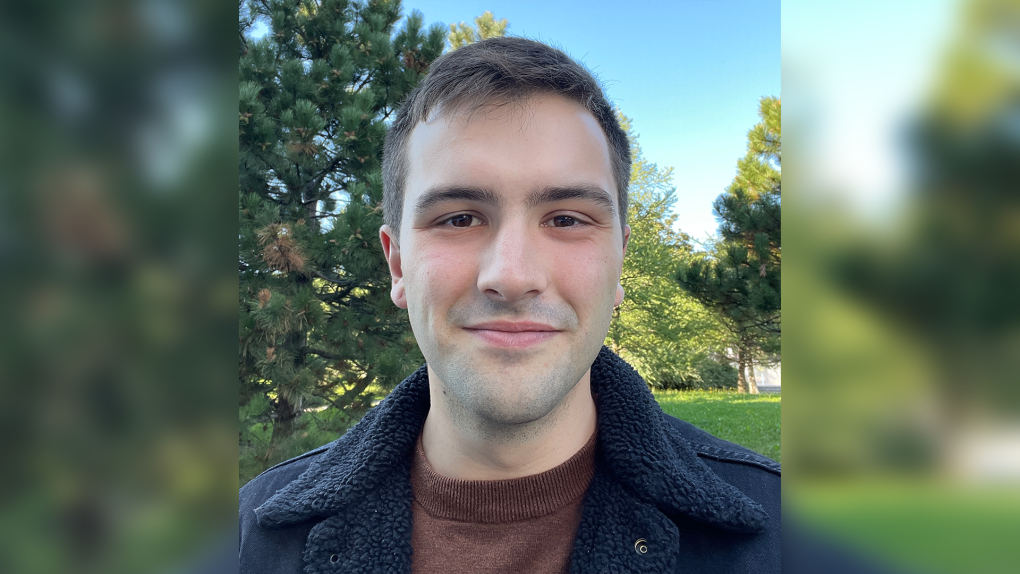
Luca Caruso-Moro (he/him)
Luca Caruso-Moro is a multimedia journalist living and working in Montreal. His work centres local stories of crime, culture and politics. He has also contributed to several documentary projects with a focus on Indigenous storytelling and green energy, including a previous project with Aphrodite Salas entitled "from shore to sky: a reconciliation story," which was recognized with an award from RTDNA. His reporting and filmmaking have also been recognized with awards from TIFF and other film festivals. Originally from Toronto, his familial roots are in spectacle arts and theatre. He contributed to this piece as a videographer, editor, and web designer as part of Aphrodite's media partnership with CTV News Montreal, where he works as a reporter for both web and TV.
"It was a great honour to work with people in Inukjuak to share their story of green energy innovation. I am one of many who will be watching this project closely in the years to come as the community gradually moves away from diesel which, as they have recounted, has caused more than enough trouble for the local environment over the past years."
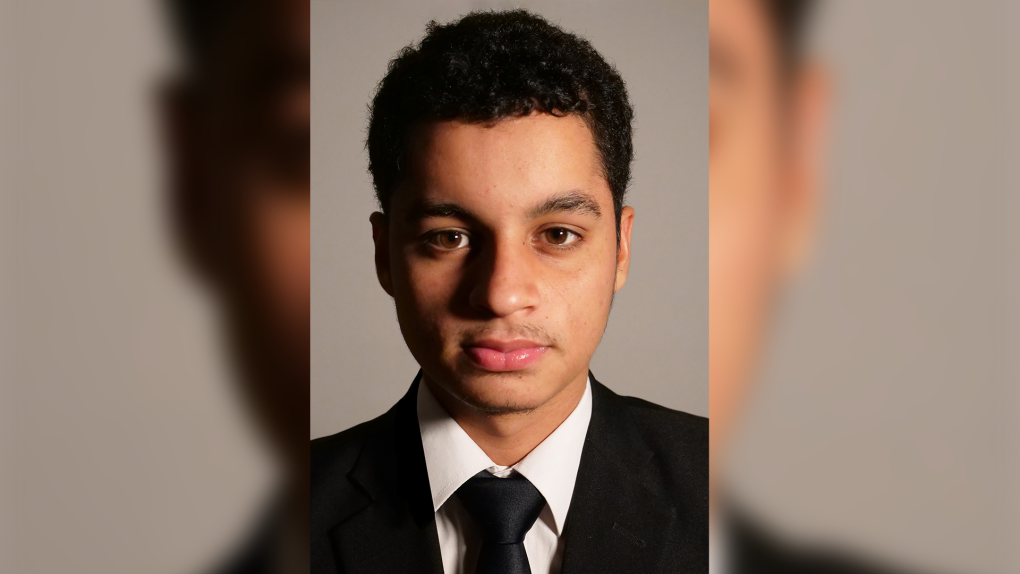
Kaaria Quash (he/him)
Kaaria Quash is a graduate student, freelance journalist and independent filmmaker with interests in climate change science, wildlife and Indigenous issues. He grew up in Trinidad & Tobago and France, and is currently based in Montreal, completing his MA at Concordia University in the Department of Journalism.
He has interned at Le Devoir, CBC Montreal and CIM Magazine, and is currently focused on filmmaking and video editing. His most recent work, a documentary on sea turtles in the Caribbean called “Caught in the Net” was featured at film festivals in Trinidad & Tobago, Montreal, Vancouver and the UK.
The Inukjuak project is part of Kaaria’s thesis which focuses on climate change reporting in Indigenous territories, with a focus on documentary storytelling.

Virginie Ann (she/her)
Virginie Ann is an award-winning journalist currently based in Whitehorse at CBC Yukon. Before moving to the Yukon, Virginie was a reporter at The Canadian Press in Montreal, and prior to that she worked at The Eastern Door in Kanesatake. Since 2018, Virginie has been part of a docu-series team based at Concordia University which covers climate leadership in Indigenous communities, in partnership with the Indigenous Clean Energy Social Enterprise. Her interest in Indigenous issues, conflict management and documentary filmmaking developed over the past decade, during her travels and education at Concordia University. Virginie studied law and politics in North Africa, worked as a radio and television host in Saskatchewan and Hungary, and explored large parts of Canada, South America and Europe alone. Virginie holds a BA in Journalism from Concordia University.
"Inukjuak and the people who live there taught me so much about respecting the land. Nunavik has a climate that can be described as harsh, powerful and beautiful. Being there, and listening to heart-wrenching testimonies about the past as well as witnessing leadership and resilience in action - taught me things I could never have learned from books or in a classroom. I will forever be grateful to the community of Inukjuak for each one of these lessons.”
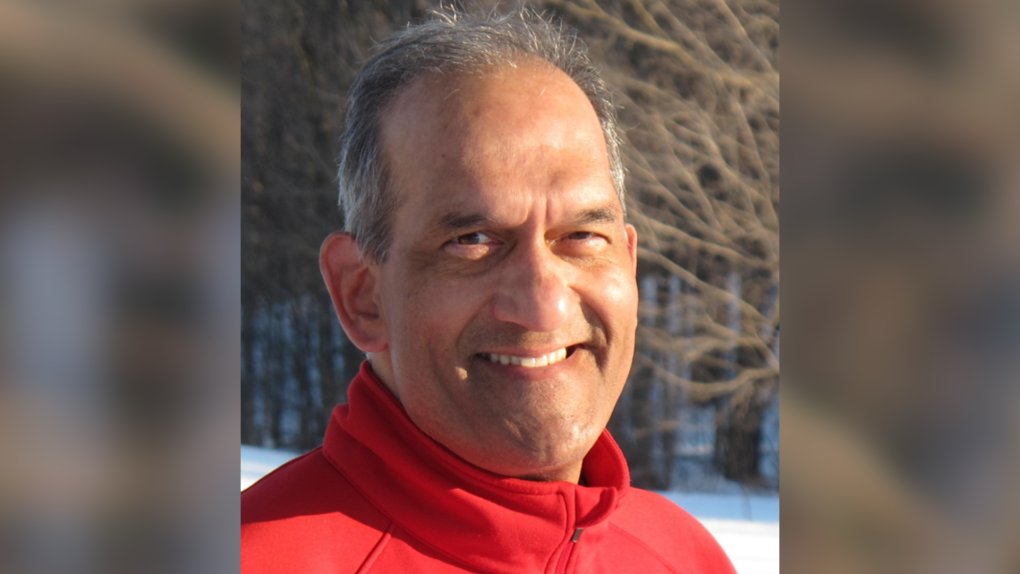
Chris Henderson (he/him)
Chris Henderson is a Canadian clean energy thought leader, eco-entrepreneur and environmental innovator. He is the Founding Executive Director of the Indigenous Clean Energy Social Enterprise and the President of Lumos Energy. For the past 35 years, he has led and been at the forefront of ground-breaking Canadian enterprises and local/national business, social and ecological initiatives which have global impact and resonance. Chris is a trusted and insightful commentator on economic, environment and energy issues that respect the Planet, and generate enduring outcomes for corporations, communities and Canada. Chris has two prime areas of focus. Firstly, advising and equipping Indigenous peoples and communities to develop and own clean energy projects to catalyze social development, economic opportunity and to combat Climate Change. Secondly, providing high-impact strategic advice on accelerating energy transition to a low carbon and more competitive energy future. Chris’ first book Aboriginal Power was published in 2013.
“Indigenous Clean Energy (ICE) is honoured to work hand in hand with Concordia University’s Journalism Program to share First Nations, Métis and Inuit clean energy stories interactively with a Canadian and global audience. Inclusion and understanding of Indigenous world views, to realize a climate and energy positive future is essential.”
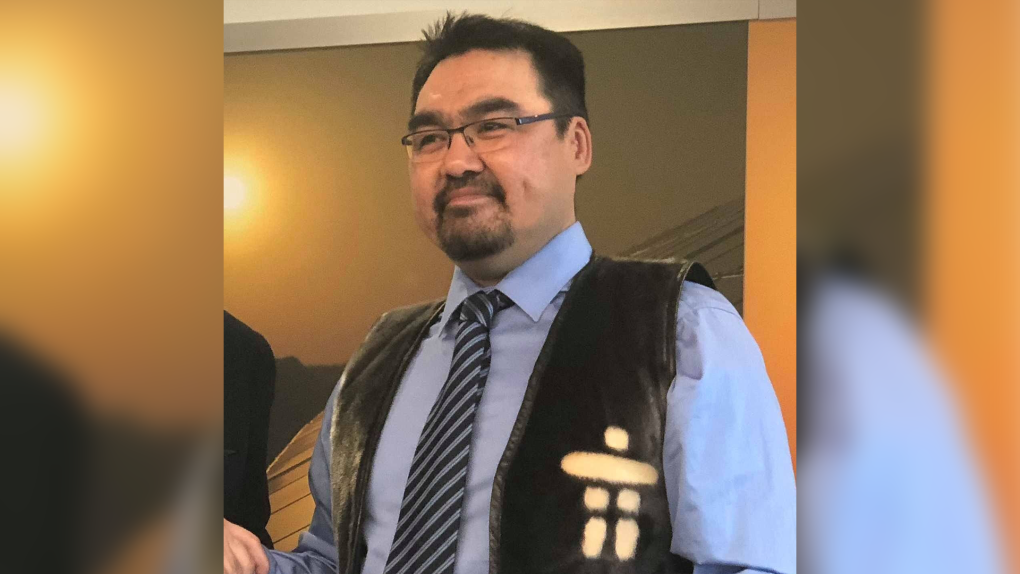
Eric Atagotaaluk
Born in Iqaluit, Nunavut, Eric has been living in Inukjuak, Nunavik since 1982. He was first elected board member of Pituvik Landholding Corporation (Pituvik LHC) in 1997 then appointed President of the Corporation in 2002. Among the corporation’s many mandates initiating economic development projects for the community is a priority. Spearheaded by Pituvik, Pituvik LHC initiated the Innavik Hydro Project in 2008 as a community project on behalf of its members, to create sustainable development opportunities and tackle climate change by reducing green house gases emitted from the community, who are largely dependent on diesel for electricity. Now employed as director for Pituvik Sarvaq Energie since 2019, the corporation created to be the other owner of the Innavik Hydro.
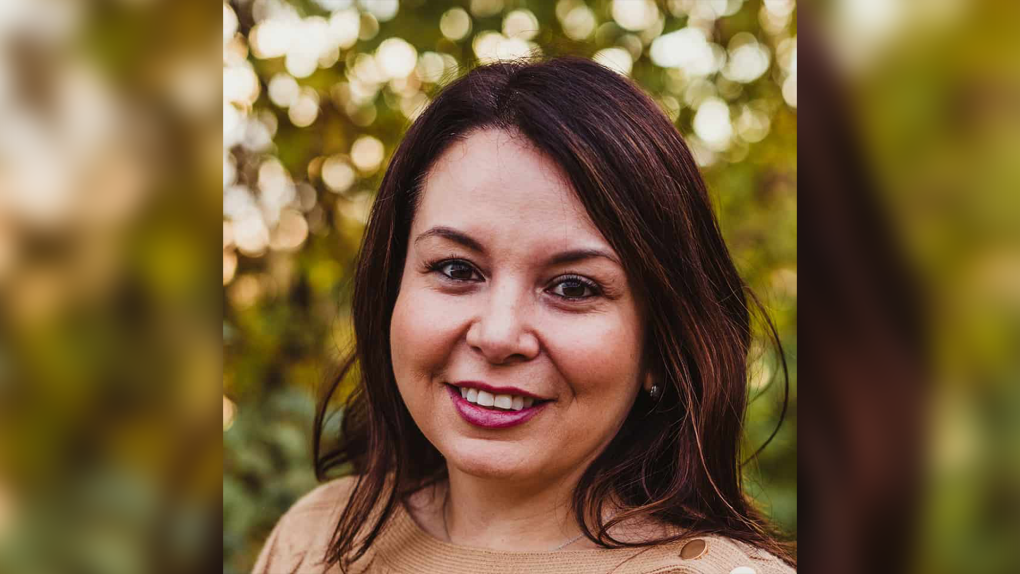
Terri Lynn Morrison (she/her)
Terri Lynn is a proud First Nations Mi’gmaq woman from Listuguj, Quebec where she was born and raised. Terri Lynn has a deep understanding of First Nations realities and is passionate about Indigenous involvement in a just transition. She was responsible for establishing the connection between Concordia University and community leaders in Inukjuak and helping to prepare the Concordia team before traveling to Nunavik.
In 2019, Terri Lynn joined the Indigenous Clean Energy (ICE) team as the Director of Strategic Partnerships and Communications and is currently the Associate Executive Director of ICE. Her clean energy journey began in 2014, when she became the Project Director for a 150MW Wind Farm that was owned and developed with three Mi’gmaq communities and their partner, Innergex Renewable Energy Inc. from Longueil, QC. This project was recognized by the Quebec Wind Industry, where it received the Excellence in Human Resources Award, and Terri Lynn was recognized as the Rising Star for her contribution in fostering social acceptability for the project.
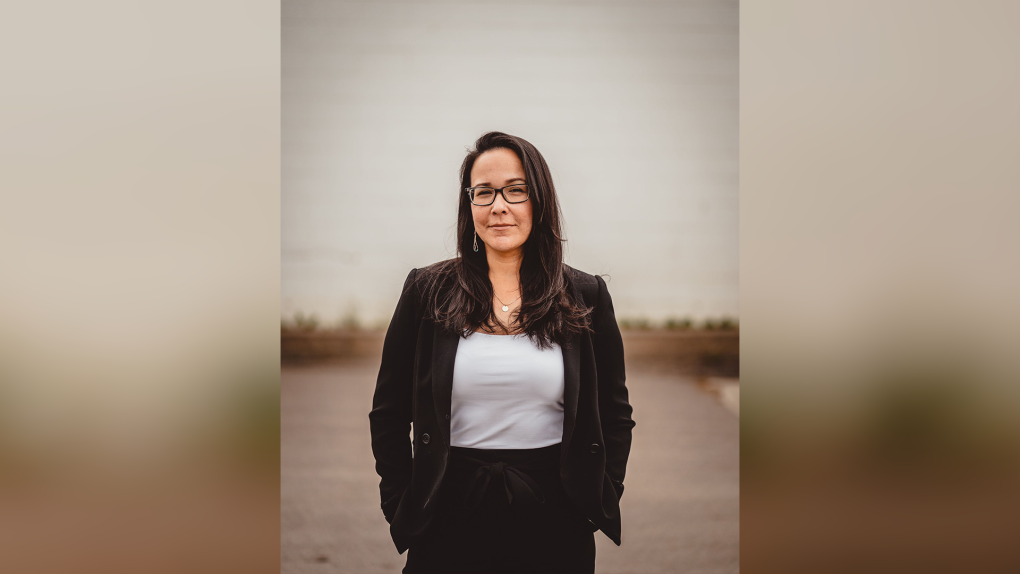
Willow Fiddler (she/her)
Willow Fiddler is Anishinaabe Oji Cree from Sandy Lake First Nation, a Treaty No. 5 community near the Manitoba border. She started in 2016 as a VJ for APTN National News in Thunder Bay, and is now with The Globe and Mail.
Willow worked with the Inukjuak team before travel to Nunavik, by offering specialized Indigenous Reporting training, through her involvement with Journalists for Human Rights. She notes, “JHR's Indigenous Reporting program has been an important stepping stone in my journey to journalism by first offering training opportunities as an emerging journalist, and now as a trainer working with newsrooms and journalism students.”
“Journalism in Canadian mainstream media is changing and evolving to meet the needs of all communities, particularly those typically and historically underrepresented or stereotyped. Indigenous perspectives and experiences are essential to understanding how best to serve those and other racialized communities.”
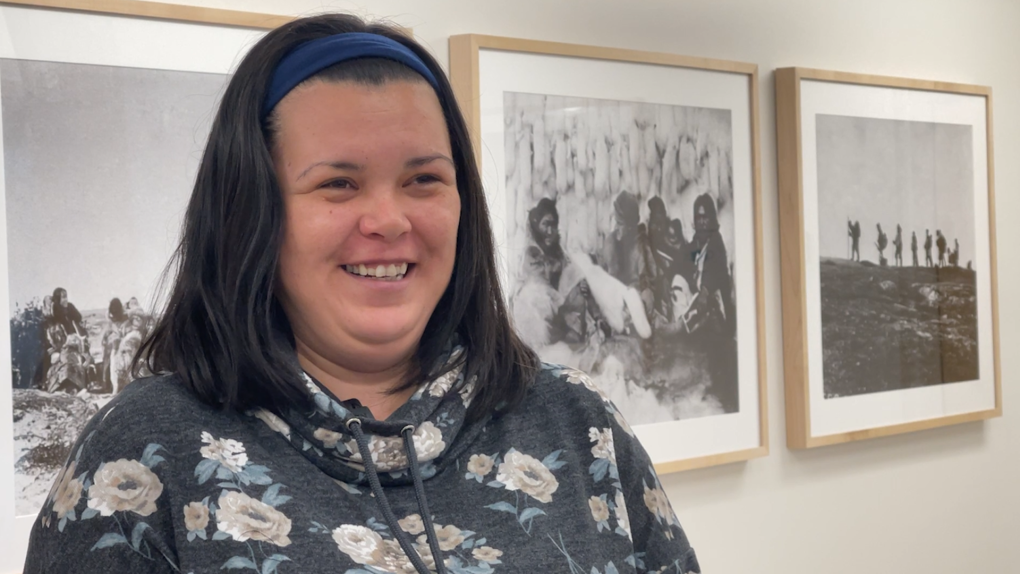
Sarah Lisa Kasudluak (she/her)
Sarah Lisa Kasudluak is the current President of the Pituvik Landholding Corporation. She is the first female President.
My community has gone through so many changes in a matter of short period of time. Not long ago, my ancestors were living off the land and were nomadic. Since there has been many changes, we are now living in settlements, living in social housing, and work to make a living.
How I grew up is not the same for my children. They have more resources than I did. Since we are moving forward with our project, I am very sure, how my children grew up will be much different for the future generations. We have this great opportunity to take back our identity and culture through this project. This will give us a change to reclaim our culture and traditions through modern technology.
"There is a great need for healing, and this is my dream to see a Healing center based on traditional values. This will create an opportunity for our community to heal the wounds that hasn’t had the time to heal. We are moving away from being colonized and each step to claim our beauty in our culture is going to be a great success for our people. We are here to stay and will flourish with the modern times using different set of tools."
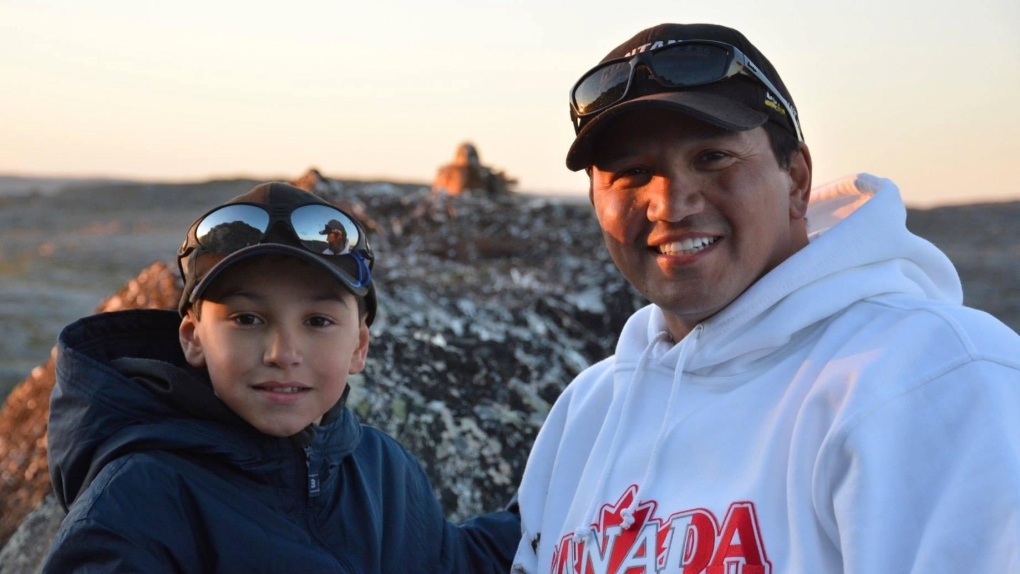
Tommy Palliser (he/him)
After growing up in the community of Inukjuak, I attended John Abbott College, acquiring a Social Sciences Diploma in 1999 and then onto Concordia University, acquiring a Bachelor of Commerce Degree in 2003. I initially went on to pursue a career in Economic Development, working for the Kativik Regional Government, supporting communities, organizations and start- up small businesses in the region of Nunavik. I am an active community member and one of the co-founders of the Unaaq Men’s Association of Inukjuak, officially created in 2006, devoted to the traditional skills development of the young boys and men of the community, working with elders and other experienced hunters of the community.
Presently, I am the Executive Director of the Nunavik Marine Region Wildlife Board, managing the marine wildlife and resources in the Nunavik Marine Region with the various partners and stakeholders under the Nunavik Inuit Land Claims Agreement. I am also the Vice President of the Pituvik Landholding Corporation, that has initiated a sustainable, renewable energy project for the community of Inukjuak. I help try to assure that community projects are community-driven and provide maximum benefit and return to the community members through the landholding corporation.
CTVNews.ca Top Stories

BREAKING Donald Trump picks former U.S. congressman Pete Hoekstra as ambassador to Canada
U.S. president-elect Donald Trump has nominated former diplomat and U.S. congressman Pete Hoekstra to be the American ambassador to Canada.
Genetic evidence backs up COVID-19 origin theory that pandemic started in seafood market
A group of researchers say they have more evidence to suggest the COVID-19 pandemic started in a Chinese seafood market where it spread from infected animals to humans. The evidence is laid out in a recent study published in Cell, a scientific journal, nearly five years after the first known COVID-19 outbreak.
This is how much money you need to make to buy a house in Canada's largest cities
The average salary needed to buy a home keeps inching down in cities across Canada, according to the latest data.
Canada's space agency invites you to choose the name of its first lunar rover
The Canadian Space Agency (CSA) is inviting Canadians to choose the name of the first Canadian Lunar Rover.
'My two daughters were sleeping': London Ont. family in shock after their home riddled with gunfire
A London father and son they’re shocked and confused after their home was riddled with bullets while young children were sleeping inside.
Smuggler arrested with 300 tarantulas strapped to his body
Police in Peru have arrested a man caught trying to leave the country with 320 tarantulas, 110 centipedes and nine bullet ants strapped to his body.
Boissonnault out of cabinet to 'focus on clearing the allegations,' Trudeau announces
Prime Minister Justin Trudeau has announced embattled minister Randy Boissonnault is out of cabinet.
Baby dies after being reported missing in midtown Toronto: police
A four-month-old baby is dead after what Toronto police are calling a “suspicious incident” at a Toronto Community Housing building in the city’s midtown area on Wednesday afternoon.
Sask. woman who refused to provide breath sample did not break the law, court finds
A Saskatchewan woman who refused to provide a breath sample after being stopped by police in Regina did not break the law – as the officer's request was deemed not lawful given the circumstances.

































